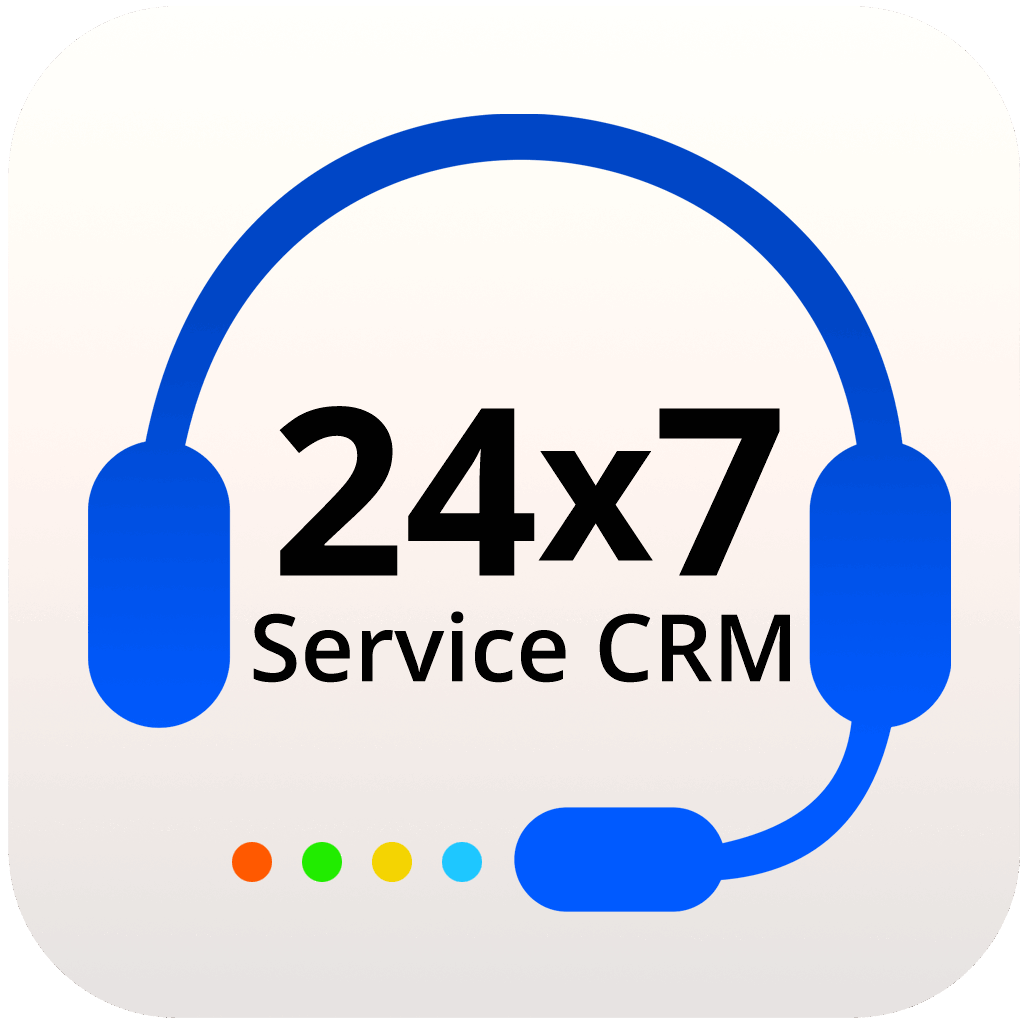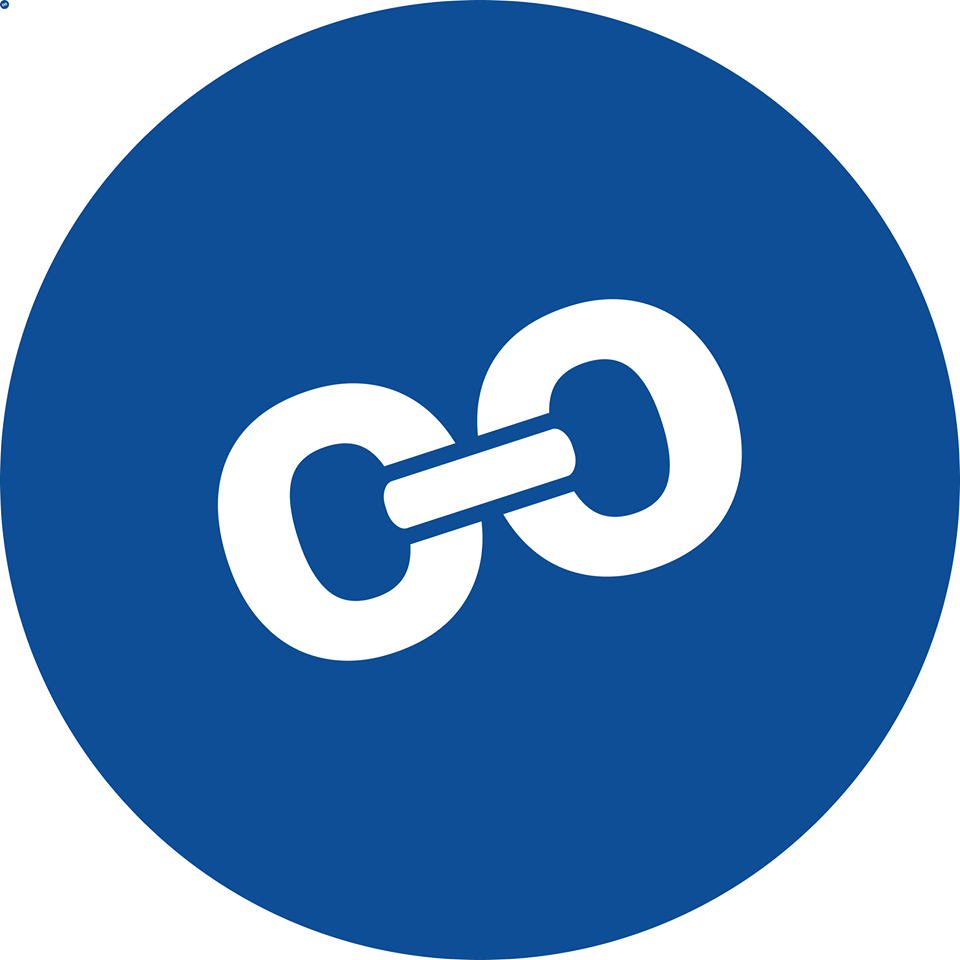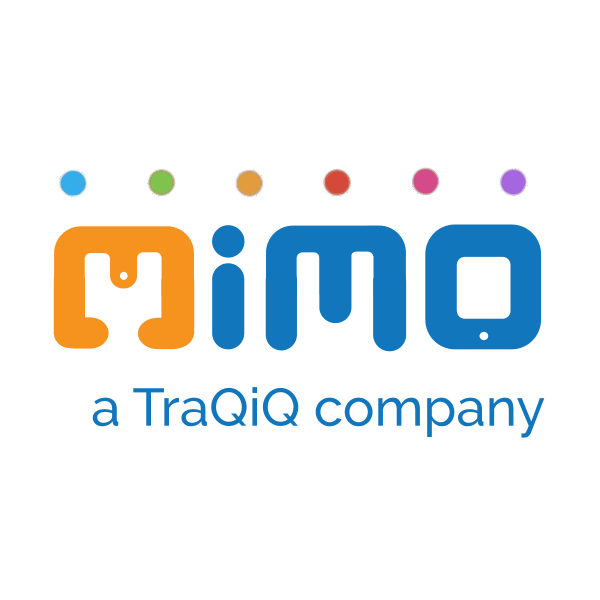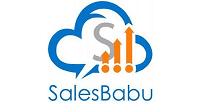What Is After Sales Service Management Software?
After Sales Service Management Software (ASSM) is specialist software that assists organizations in successfully managing the procedures involved in providing after-sales assistance to their clients. It simplifies and automates operations like customer support, order administration, warranty tracking, and issue resolution, leading in higher customer satisfaction and more operational efficiency.
This software is especially tailored to the demands of organizations who provide items or services with a warranty or customer service component. It acts as a consolidated database for all customer information, service requests, and associated transactions, allowing firms to track and manage the full after-sales support process with ease. One of the most major advantages of using After Sales Service Management Software is that it allows organizations to deliver prompt and efficient customer care, resulting in greater client retention and loyalty.
This software, which includes automated service ticketing, real-time updates, and customer self-service portals, allows for rapid and effective communication between the business and its consumers. Furthermore, After Sales Service Management Software has extensive reporting and analytics capabilities that give useful insights into customer behavior, service trends, and overall performance.
These insights enable firms to discover areas for development, make data-driven choices, and constantly improve their after-sales support procedures. Investing in After Sales Service Management Software may help firms save time, effort, and resources that would otherwise be spent manually managing after-sales services. It also enables companies to focus on other critical parts of their organization, such as product development and marketing, in order to remain competitive in today's market.
What Are the Recent Trends in After Sales Service Management Software?
After-sales service management software has emerged as a crucial tool for firms in today's competitive industry. With rising consumer expectations and technological advancements, the demand for efficient and effective after-sales support has grown critical. In recent years, various trends in after-sales service management software have transformed the market. These tendencies should be considered while selecting a software solution for your organization.
Let's look at some of the most current trends in after-sales service management software.
1. Cloud-based Solutions: The era of traditional on-premise software is over. Cloud-based solutions have emerged as the preferred alternative for enterprises of all sizes. This trend has grown significantly because to its multiple benefits, including cost-effectiveness, scalability, and remote access.
2. Mobile Accessibility: As the popularity of smartphones and tablets grows, customers want to be able to access after-sales service management solutions from their mobile devices. This trend has resulted in the creation of mobile-friendly software and applications that make it easier for businesses and consumers to access and manage after-sales services.
3. Artificial Intelligence (AI): AI has found its way into the after-sales service management scene, allowing firms to automate and improve a variety of procedures. AI-powered systems can evaluate data, forecast client behavior, and provide tailored solutions, hence boosting the total post-sales experience.
4. CRM integration: After-sales service management has become increasingly reliant on customer relationship management (CRM) software. Businesses can now effortlessly integrate their after-sales service data with their CRM, giving them a comprehensive picture of the customer journey and optimizing the entire process.
5. Real-time Analytics: By leveraging data analytics and reporting, organizations can now analyze and evaluate their after-sales service performance in real time. This trend has allowed organizations to discover areas for development and make data-driven decisions that improve the entire consumer experience. These recent innovations in after-sales service management software have altered the way firms handle after-sales service. When selecting a software solution, ensure that it matches with these trends while also meeting your company's particular demands.
Benefits of Using After Sales Service Management Software
After Sales Service Management Software is a vital tool for firms who aim to give excellent customer service. This software automates and optimizes the operations associated with after-sales services, such as warranty claims, repairs, and returns. It enables firms to efficiently manage client contacts while maintaining a high level of customer satisfaction.
Let us take a deeper look at the advantages of adopting After Sales Service Management Software.
1. Boosts efficiency and productivity: One key benefit of employing After Sales Service Management Software is that it increases your team's efficiency and production. This program centralizes all after-sales support requests and tasks, reducing the need for manual data input or paperwork. This simplifies the entire process and decreases the possibility of mistakes, eventually saving time for your team. As a consequence, your staff can manage more client requests and address them more quickly, increasing their productivity.
2. Improves Customer Experience: After-sales service is an important component of the customer experience, and implementing After Sales Service Management Software may considerably improve it. The program enables organizations to reply to client inquiries and complaints in a quick and effective manner, providing a great customer experience. With features such as real-time status updates and automatic communication, the software keeps consumers informed throughout the service process, fostering trust and loyalty.
3. Centralised Information and Communication: After Sales Service Management Software provides a consolidated platform for organizations to manage all post-sales service requests and communication. This removes the need for various systems and procedures, allowing organizations to better manage and monitor client interactions. Furthermore, having all of the information in one location enables a smooth flow of communication across departments, resulting in a better coordinated and effective service.
4. Real-time Analysis and Reporting: The program also offers real-time analytics and reporting, allowing firms to monitor and evaluate their after-sales support performance. This data can help identify areas for improvement, client satisfaction levels, and service response times. These insights may assist firms in making better informed decisions that can streamline their operations, boost customer happiness, and increase overall efficiency.
5. Cost savings: Using After Sales Service Management Software may result in considerable cost reductions for organizations. Businesses may minimize operating expenses by streamlining procedures, reducing paperwork, and improving efficiency. Furthermore, the software can assist reduce the likelihood of mistakes, lowering the need for costly rework or refunds. This leads to long-term cost reductions for the firm.
Important Factors to Consider While Purchasing After Sales Service Management Software?
When choosing after-sales service management software, purchasers should examine a number of crucial considerations. This software may have a significant influence on a company's capacity to efficiently manage and enhance its after-sales support procedures, therefore it is critical to thoroughly consider all possibilities before making a selection.
Here are some important aspects to bear in mind while looking for the best after-sales service management software:
1. Software features and functionality are critical things to consider: It should include modules and tools for automating after-sales support activities such as service ticket administration, warranty tracking, and customer interactions. Make sure to emphasize your company's particular requirements and select software with relevant and useful features.
2. User-Friendly Interface: The program's user interface should be intuitive and simple to use, since this will have a significant impact on your team's adoption and use of the product. Consider completing a sample or free trial to get a sense of the UI and how user-friendly it is.
3. Integration and Compatibility: The after-sales service management software should be compatible with your current systems and easy to combine with other software you use. This will save time and money in the long run while ensuring smooth data movement between systems.
4. Customization and Scalability: Because each company's demands and operations are unique, it is critical to select software that can be tailored to your specific needs. Furthermore, the software should be scalable to support future growth and changes in your organization.
5. Mobile Compatibility: Given the growing popularity of mobile devices, it is critical to select software that is compatible with smartphones and tablets. This will enable your staff to access and update information on the fly, enhancing efficiency and production.
6. Customer assistance: When choosing software, it is critical to assess the degree of customer assistance available. Look for software that provides frequent upgrades, training tools, and timely technical support to guarantee a seamless deployment and long-term success.
7. Cost and ROI: While the software's cost is essential, so is the prospective return on investment (ROI). Look beyond the initial investment and examine the long-term advantages and cost reductions that the program can give.
What Are the Key Features to Look for in After Sales Service Management Software?
After-sales service is an important component of every organization since it helps promote client loyalty and satisfaction. To streamline and optimize your after-sales services, you must invest in dependable after-sales service management software. With so many alternatives available on the market, it might be difficult to select the best one for your organization.
The following are the essential elements to consider while picking an after-sales service management software:
1. Customer Relationship Management (CRM): A strong CRM system is the foundation of any after-sales service management software. It enables you to store and manage consumer data, track their interactions with your company, and customize your offerings to meet their demands.
2. Service Ticket Management :The software should have a ticket management system to efficiently manage client complaints, issues, and requests. This tool helps you to assign, track, and manage service requests from beginning to end, assuring prompt resolution and increased customer satisfaction.
3. Warranty and Contract Management :If your company provides warranty or service contracts, ensure that the software has a solid method for managing them. This tool may help you keep track of contract expiration dates, service history, and automate the renewal process.
4. Knowledge Base Management: A knowledge base is a collection of material that includes answers to frequent questions and FAQs. It can help your consumers find solutions to their questions on their own, putting less burden on your customer care personnel.
5. Service Analytics: The program should gather and analyze information gleaned from service requests, customer comments, and other contact points. This tool allows you to spot patterns, measure performance, and make data-driven decisions to improve your after-sales services.
6. Mobile Accessibility: With the growing popularity of mobile devices, having mobile-friendly after-sales service management software is essential. It enables your staff to view and edit information on-the-go, resulting in faster reaction times and improved customer service.
7. Integration Capabilities: Your after-sales service management software should work easily with your existing systems, including CRM, inventory, and accounting software. This tool allows for data exchange, minimizes manual effort, and gives a comprehensive perspective of your business activities.
8. Training and Support: Before making a purchase, be sure that the software vendor provides extensive training and technical support to enable your staff become acquainted with the system and quickly fix any difficulties.
Why Do Businesses Need After Sales Service Management Software?
Businesses use After Sales Service Management Software because it allows them to streamline and optimize their post-sales operations, resulting in higher customer happiness and profitability. These software solutions include a variety of capabilities, including service ticketing, warranty management, service scheduling, and customer communication, all of which are essential for properly managing after-sales care.
First and foremost, After Sales Service Management Software helps organizations to track and handle customer complaints as soon as possible. Businesses may handle client complaints and requests more effectively with service ticketing and case management systems, ensuring that no issues go unsolved. This not only makes customers happier, but it also helps develop a favorable brand image.
Second, these software solutions give organizations a consolidated platform to manage warranty claims. This allows for more precise tracking of warranty durations, faster claim processing, and less revenue loss owing to invalid or expired warranties. Furthermore, by automating service scheduling, After Sales Service Management Software allows firms to streamline their service operations, resulting in increased productivity and lower costs.
The program also allows firms to examine service data in order to find possible areas for improvement and make proactive decisions to prevent future service difficulties. Furthermore, After Sales Service Management Software improves client connection by providing features such as customer portals and automated communication systems.
This not only increases client happiness but also helps to create long-term connections with them.
How Much Time Is Required to Implement After Sales Service Management Software?
The time required to adopt After Sales Service Management Software (ASM) varies based on several factors, including the size and complexity of your organization, the level of customisation necessary, and the vendor's workflow procedure. On average, the implementation procedure might take between 4 and 12 weeks. To begin, it is critical to recognize that the installation process entails more than simply installing software.
It requires several steps, including planning, data migration, customisation, training, and testing. Each stage takes a set amount of time to ensure a smooth and effective execution. The first step of planning generally lasts 2-4 weeks and includes setting objectives, identifying important stakeholders, and understanding your business processes.
This step establishes the framework for the whole implementation process. The next step is data migration, which can take 3-6 weeks depending on the volume and complexity of the data to be moved to the ASM program. To minimize delays in your business operations, you must verify that all of your data is correctly moved. Customization can be a time-consuming procedure because it requires adapting the ASM software to your individual company requirements.
This can take anywhere between 4 and 8 weeks, depending on the level of personalization necessary. Training is another critical component of adopting an ASM software. The period of training varies based on the complexity of the program, but it often takes 1-2 weeks. It is critical to teach all of your staff to ensure they are comfortable and proficient in utilizing the new software.
Finally, the testing step might take 2-4 weeks to find and resolve any faults or difficulties before launching the ASM software. Finally, the deployment of ASM software can take 4-12 weeks, and it is critical to have a clear knowledge of your company goals as well as a well-defined plan in place to guarantee a seamless and effective transition. Investing time and resources in the implementation process will result in better after-sales support and client satisfaction.
What Is the Level of Customization Available in After Sales Service Management Software?
When it comes to after-sales service management software, one critical consideration is the amount of customisation offered. This refers to the capacity to modify the software to your company's particular demands and operations. Whether you're a little business or a major corporation, having customisable after-sales service management software may significantly enhance your entire customer care experience. The amount of customization possible in after-sales service management software varies according to the vendor and the product's individual capabilities.
However, most software provides a high level of flexibility to meet the varying demands of various firms. Here are some important factors to consider when considering the extent of customisation in after-sales service management software.
1. User Interface: Can you adjust the software's user interface to match your brand's aesthetics and terminology? This not only promotes brand consistency but also increases user adoption and engagement.
2. Workflows: A reliable after-sales service management software should enable you to design custom workflows that are consistent with your company procedures. This might involve automating activities, implementing approval processes, and enabling notifications for certain occurrences.
3. Fields and Forms: Can you add or delete fields, or even develop custom fields and forms to collect data particular to your business? This level of customisation allows you to personalize the program to your specific data collecting and reporting requirements.
4. Integrations: Does the program provide integrations with other systems and tools used by your company? This might be your CRM, accounting software, or inventory management system, to mention a few. Integrations can speed up data transport and increase overall efficiency.
5. Reporting: Can the reporting function of the program be customized? This includes the ability to generate bespoke reports as well as change and modify current reports to match your unique requirements. Overall, the amount of customization offered in after-sales service management software may have a significant impact on its ability to satisfy your company's specific needs.
Which Industries Can Benefit the Most from After Sales Service Management Software?
After Sales Service Management Software is a significant tool for organizations across a wide range of sectors, allowing them to manage their post-sales activities more efficiently and effectively. This program has several benefits, including the ability to streamline customer interactions, handle repair requests, and manage warranties. But which industries stand to profit the most from incorporating this software into their operations? Let's have a closer look.
1. Manufacturing business: In the manufacturing business, After Sales Service Management Software is crucial for sustaining product warranties and assuring proper equipment maintenance. With a large client base and complicated warranty management procedures, our software simplifies and automates activities, lowering the risk of mistakes and increasing productivity. Furthermore, it enables manufacturers to track customer inquiries, service requests, and comments in order to discover areas for development and give better post-sales support.
2. Retail business: In the fiercely competitive retail business, client happiness is critical. After Sales Service Management Software enables merchants to effortlessly manage returns, exchanges, and repairs, resulting in a great customer experience. By recording service requests and giving timely updates to clients, this software assists merchants in developing trust and loyalty, which leads to greater sales and repeat business.
3. Healthcare business: The healthcare business relies largely on after-sales support, including timely equipment maintenance and repairs. After Sales Service Management Software assists healthcare institutions in managing service requests and planned maintenance, maintaining equipment reliability and minimizing downtime. Furthermore, this software simplifies warranty claims, lowering administrative responsibilities and expenses for healthcare providers.
4. Information Technology Industry: For IT organizations, After Sales Service Management Software is critical for organizing post-sales support for hardware, software, and applications. It enables IT service providers to easily track and address service requests, resulting in shorter response times and more customer satisfaction. This software also gives insights into reoccurring technical difficulties, allowing firms to fix them ahead of time and minimize interruptions for customers.
5. automobile business: After Sales Service Management Software is a game changer in the automobile business, which relies significantly on post-sales assistance to retain customers. This software enhances the whole customer experience by automating activities like appointment scheduling, vehicle maintenance, and recalls, allowing dealerships to create long-term connections with their consumers.
Conclusion
To summarize, after-sales service management software is an important tool for organizations trying to improve their customer service experience and streamline their post-purchase procedures. This program provides a full solution for effective after-sales assistance, including handling customer queries and complaints, tracking product warranties, and assessing customer satisfaction.
User-friendliness, customization possibilities, integration capabilities, and affordability are all important considerations when selecting an after-sales service management software. It is critical to explore and evaluate several software solutions to determine which one best meets your unique business requirements. Investing in high-quality after-sales service management software may help your firm improve its customer service and develop strong connections with its consumers.
As a consequence, you may increase client retention, generate sales, and eventually enhance your entire business performance. We hope our buyer's guide has offered useful information to help you make an informed decision when selecting the best after-sales service management software for your company. Happy shopping!








-logo.png)













